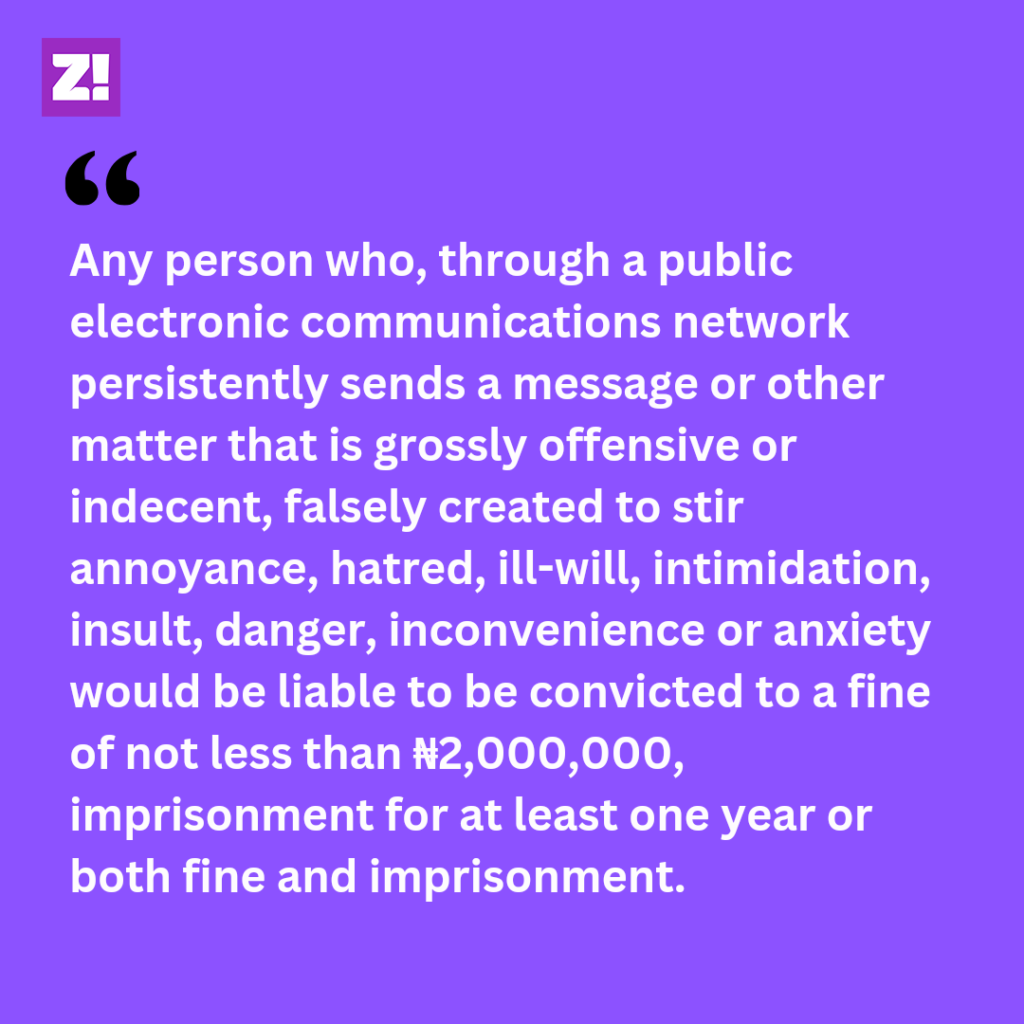Call it what you want — cyberstalking, cyberbullying or trolling — it doesn’t change what it really is. Since social media became a global means of communication, it has become common to troll or bully anyone just for fun.
There’s a chance anyone can call it freedom of speech and harmless trolling, the Nigerian law sees it as cyber-stalking and can put you in trouble.
Although the main victims have been content creators, influencers and public figures, cyber-stalking happens to people around the world every day in several shapes and forms.
Now, if you’re asking yourself, “What is considered cyberbullying in Nigeria, and how can it put me in trouble?” Here are your answers.
What Does The Nigerian Law Say About Cyberstalking?
Let’s forget our lawmakers’ previous efforts to ban social media or regulate its usage, Nigeria has laws that can incriminate some of your actions on social media.
According to Section 15 of the Cybercrime Act in 2015:

The act also states that any person(s) who sends messages with the intent to; harass, blackmail, bully or threaten another individual in such a way that causes fear of death, violence and anxiety may be convicted of a jail sentence between five to ten years, a fine between ₦15,000,000 and ₦25,000,000 or both imprisonment and fines.
What Does This Mean In Layman’s Terms?
It turns out that even if you don’t mean it, anything you say or do on social media can be used against you in a court of law — literally.
If your comments were deemed defamatory, insulting, misleading or violent by their recipient, you might have to speak to their lawyers next.
Have These Laws Ever Been Applied?
Yes. Many artists and public figures have taken this legal “no gree for anybody” anthem seriously this year and in the past.
Lawsuits have been filed against online trolls from public figures like Mercy Chinwo, Nathaniel Bassey, Mayorkun, Eniola Badmus, and Chef Dami.
Although not all these cases make it to court or jail like that of Iyabo Ojo and Lizzy Anjorin, it would be best to avoid it happening in the first place. Who knows? It could be your turn and your village people decide to sprinkle trouble in it for you.
To catch up with more unpopular laws in Nigeria, here’s Nigeria’s take on abortion.




